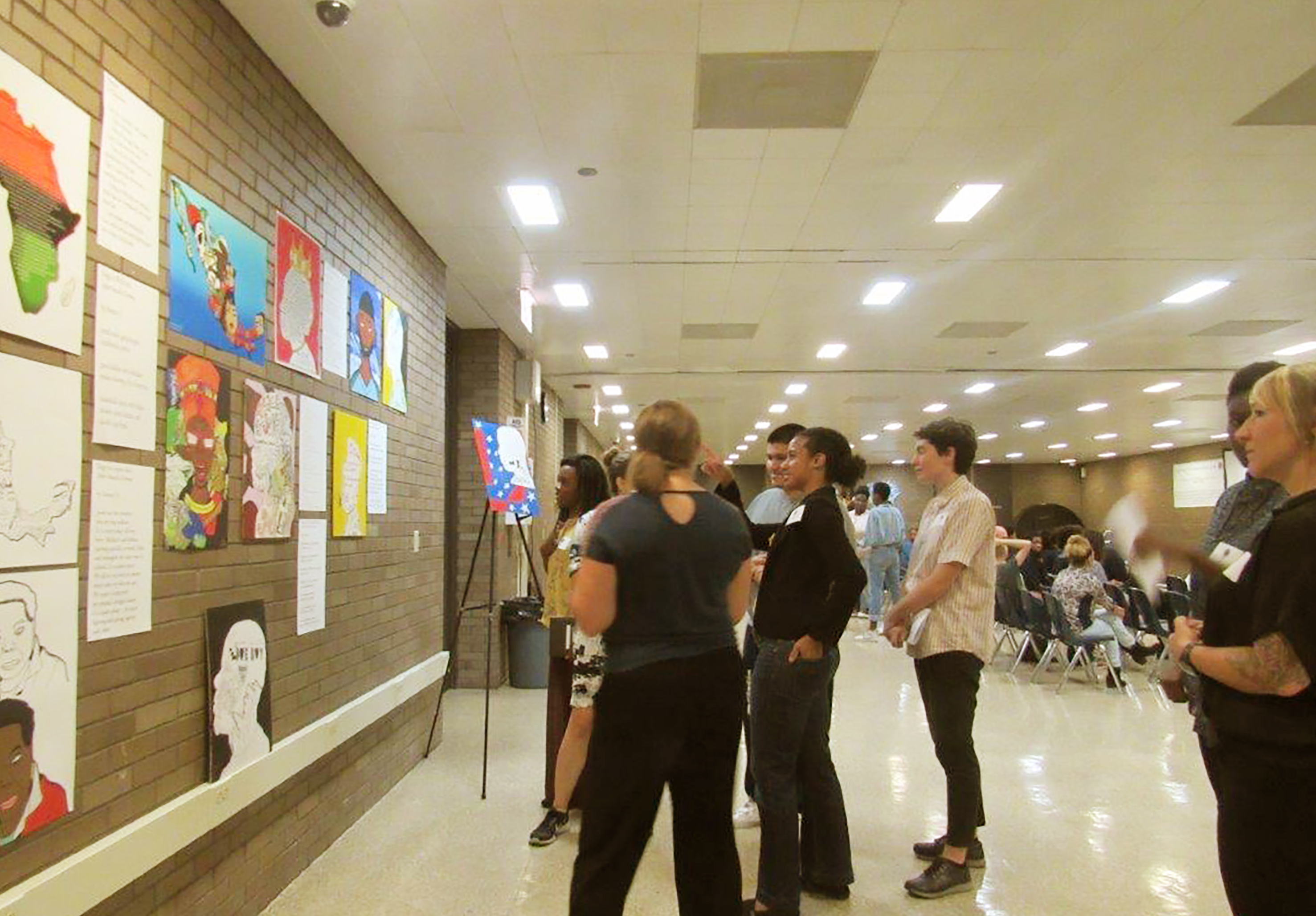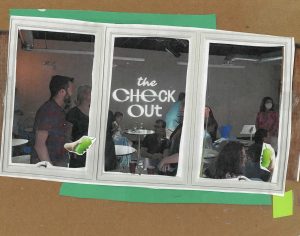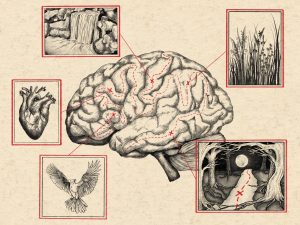Surveillance, criminalization, and budget cuts to public services impact communities, environmental contexts, policies, and institutions. These issues affect social needs and challenge community-oriented responses to political issues. All these factors collide in our carceral systems at both personal and society-wide levels, and contribute to recidivism. Communities continue to question and to seek solutions and alternatives beyond state-driven mechanisms.
Recently in Chicago, many of the direct actions and conversations at the community, local, and state levels have been related to systemic injustices. Immigration enforcement, budget cuts to mental health services, and surging violence’s purported connection to the morals of black and brown communities, funding allocated to policing within the county have been a few of the topics at the forefront of debate. Located in Cook County, Free Write Arts & Literacy and the Restorative Justice Community Court (RJCC) offer two community-oriented approaches at the intersections of re-entry and incarceration. Both organizations attempt to mitigate the effects of detainment for incarceration-affected youth and adults through creative programming and peace circles which center the harm done from non-violent crimes on the community. The work of Free Write and other organizations to further local processes for justice and restoration is being supported by Envisioning Justice’s city-wide initiative to engage the endemic issue of incarceration, especially through the arts and humanities.
Here are four current social issues which warrant an intersectional approach to reimagine strategies for sustainable and effective change:
Undocumented Youth Detainment
As part of its efforts to tackle youth incarceration, Free Write has highlighted a recently updated and released report entitled Noncitizen Youth in the Juvenile Justice System.
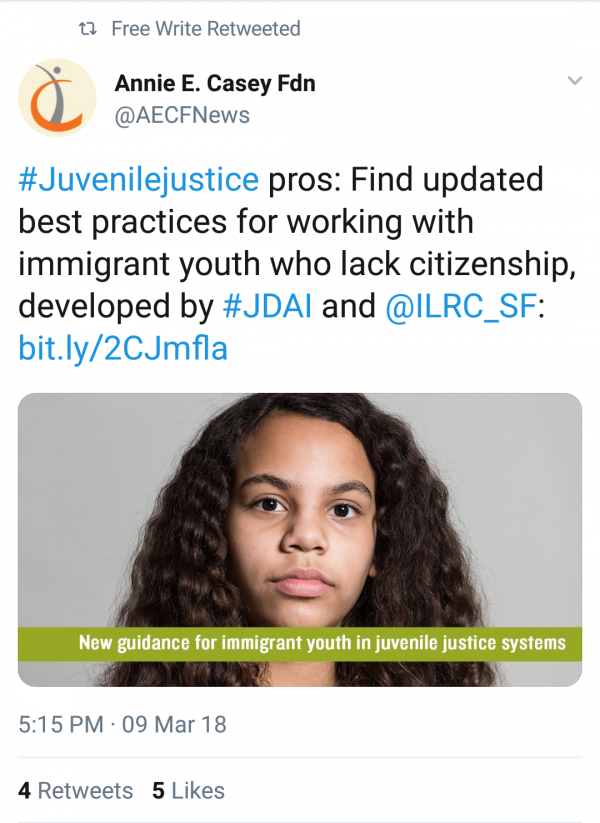
These recommendations respond to the school-to-prison pipeline within the context of immigration enforcement, which has implications not only for undocumented youth but also their family members. The report highlights the conjunction of the social, emotional, and legal contexts of navigating the community and daily life for undocumented youth. It also sheds light on the intersectional nature of the daily work that both Free Write and RJCC undertake and the need for community partnerships so that program development is attentive to the local circumstances within which it operates.
The report focuses on “updated practice recommendations for working with noncitizen youth in the juvenile justice system,” who face the particular challenge of deportation, among others. To address this threat, the report recommends: “not violating state confidentiality laws in sharing information with ICE and encouraging school and law enforcement officials to reconsider school discipline policies.” Lastly, supporting juvenile detention alternative initiatives (JDAI) which advocate for less reliance on locked detention facilities for youth “keeps noncitizen youth out of the deportation pipeline as well.”
Alternatives to Detainment for Youth with Mental Health Conditions
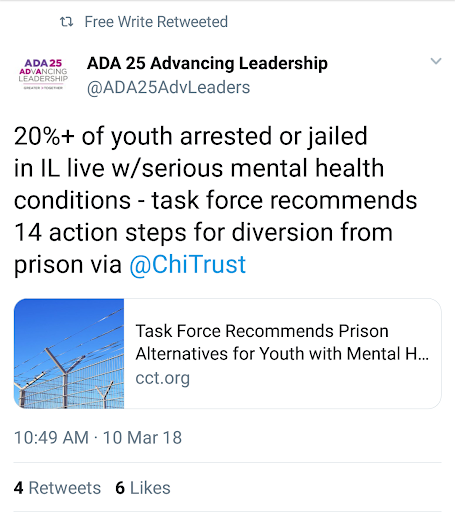
The Northwestern Juvenile Project, cited in the Illinois Mental Health Opportunities for Youth Diversion Task Force’s report entitled Stemming the Tide: Diverting Youth with Mental Health Conditions from the Illinois Juvenile Justice System, states: “in Cook County, 60% of boys and 66% of girls detained in the Juvenile Temporary Detention Center met the diagnostic criteria for one or more psychiatric disorders.” Enacted in 2017, the Illinois Mental Health Opportunities for Youth Diversion Task Force Act stresses that, “an appropriate system of care would be one in which youth with identified mental health needs receive care through the health care system in the community rather than in the juvenile justice system.” The Task Force also highlights the need for continued advocacy at the city and state levels, the development of diversion programs that are equipped to manage the juncture of mental health and juvenile legal issues, and sustainable funding options.
Key points to take away from the report are the 14 proposals on alternatives to detainment. This includes recommendations that Illinois should “expand screening and provide adequate funding for the Illinois Comprehensive Community-Based Youth Services program, a statewide network of qualified professionals responding 24/7 to youth and families in crisis.” Another alternative is to “implement a diversion program that avoids the use of arrests for misdemeanor offenses committed by youth living with mental health conditions.”
Combined with the social factors that brought the youth into the juvenile legal system, it should be noted that, detainment, separation from informal and formal supports, and navigating court involvement are traumatic experiences. Therefore, the need for effective mental health treatment for detained youth, while incarcerated and community based, is critical in order to improve the outcomes for successful re-entry.
The Illinois Budget and Its Impact on Social Service Supports
Since Illinois has been mired in Governor Rauner’s budget impasse, budget woes continue to pose challenges. Highlighting a bottom-up approach, those affected by these challenges include the community at large, its members, and organizations that utilize, provide, and depend on public services. Rising cost of living has put further pressure on communities.
Rauner’s proposed cost-shifting plan put forward in the February 2018 budget address points to the impending financial crisis that could spread throughout the state if his proposals were enacted. This instability jeopardizes community partnerships such as GED, substance abuse, mental health, and job readiness programming which are integral for participants’ long term success and improved outcomes for recidivism. It also undercuts the mission of program innovation by not providing well-supported public services. Referral linkage and backing for these types of programs are key to participants, the organizations, and the community at large.
Community Buy-In to the Restorative Justice Community Court
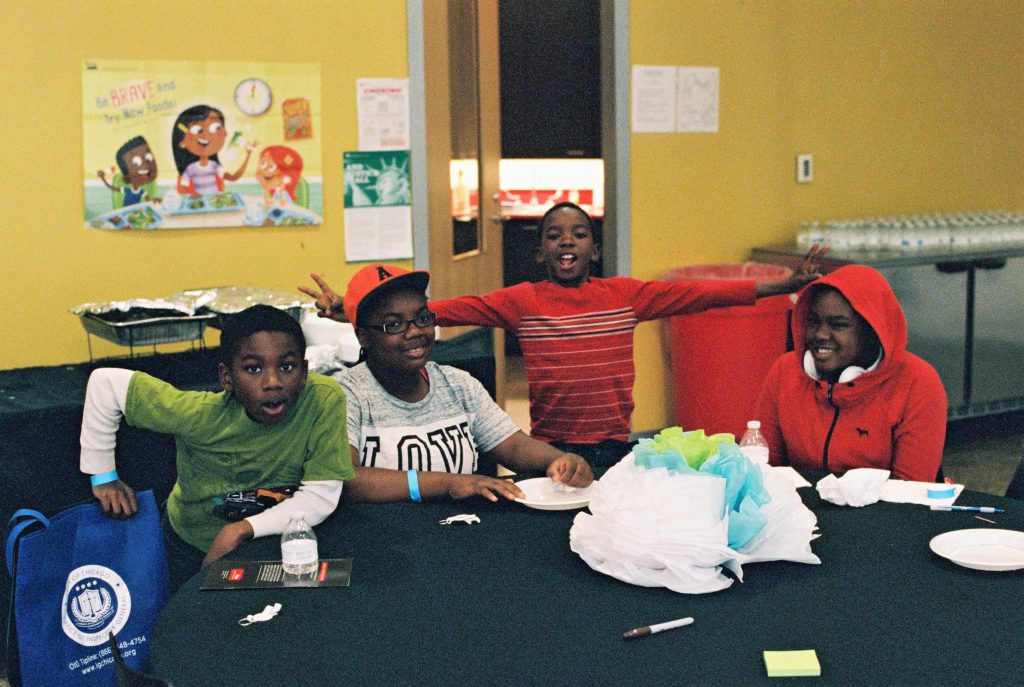
Restoration and healing within the restorative justice framework, community context, and criminal legal system must consider disparate concerns. These elements include distrust surrounding the “community relationship with the court system” and willingness to participate in processes such as peace circles that attempt to rehabilitate relationships between those charged with non-violent misdemeanors and felonies and those harmed.
The court has operated for more than a year and town halls in the North Lawndale area have been convened to collectively consider their impact and potential. It should be noted that the impact, challenges, and successes of this program’s continued efforts to involve broader community voices are unclear. It has been put forward that the community is familiar with the restorative justice principles due to similar programs existing, however the need to provide consistent opportunities for community involvement and input on the community court model should not be overshadowed.
In the face of the vital issues highlighted in these reports and research, further programming alongside the initiatives provided by Free Write and RJCC must be developed to advance capacity- and community-building for marginalized populations across Chicago.
_
This article is published as part of Envisioning Justice, a 19-month initiative presented by Illinois Humanities that looks into how Chicagoans and Chicago artists respond to the the impact of incarceration in local communities and how the arts and humanities are used to devise strategies for lessening this impact.
Featured Image: Guests are looking at featured artworks made by Free Write students displayed on a wall at the Cook County Temporary Juvenile Detention Center, during the Stomping Ground open mic event hosted by Free Write Arts & Literacy, created and produced by Free Write program manager Elgin Bokari. Photo by Chelsea Ross.
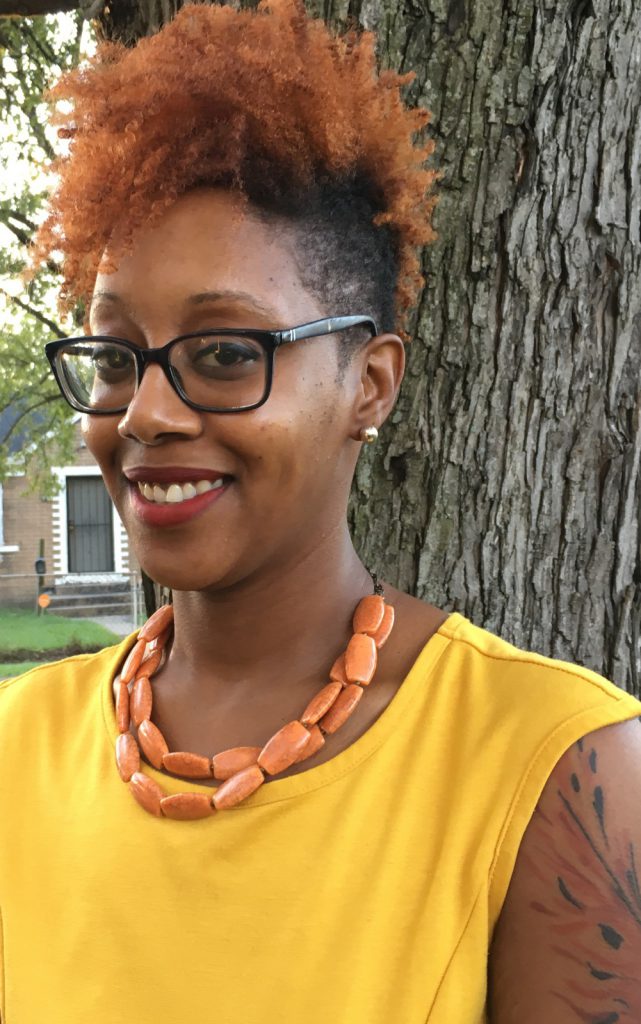
Sequoya D. Hayes, LSW, is a licensed social worker in Illinois and Indiana. Her professional experience spans more than 15 years of direct and administrative social work practice. Her professional practice in social work as a Clinician, Community Organizer & Educator, includes the assessment, treatment and advocacy of black women & girls involved in the child welfare and juvenile justice systems. She writes on basic need insecurities, anti violence, and advocacy surrounding the trauma of criminalization and surveillance of black women and girls. Sequoya’s pronouns are she/her. You can connect with her on twitter @profmasala and Instagram @sequoya_community.
